The living language of the Chinese people
« previous post | next post »
The following buzzwords from social media show that, when they get out from under the thumb / heel of the CCP, the Chinese people have a lot of lively spunk and clever wit. Contrast "Chinese buzzwords for 2023" (12/6/23), the official ones — mostly deadly dull.
The Language of Now: China’s Best Internet Slang in 2023
Sixth Tone lists the buzzwords that shaped conversations on Chinese social media.
By Sixth Tone
Dec 28, 2023
The netizens have to keep one step ahead of the internet police to get these fun words out there.
显眼包
Class Clown
Literally meaning “eye-catching,” 显眼包 (xiǎn yǎn bāo) and its variations appear in a number of Chinese dialects. The term became widespread online after Guo Beibei — a phenomenally popular internet celebrity who later lost her account for violating short video platform Kuaishou’s rules on “vulgar” content — began using it to describe herself. Now, it’s become a byword for attention-seekers, goofballs, and anyone who is willing to get weird for a like.
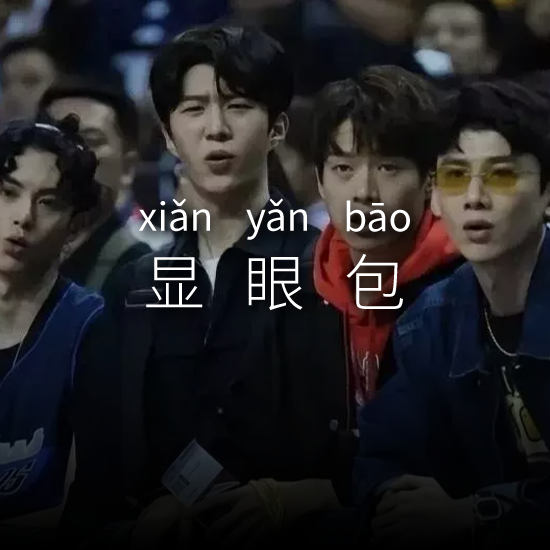
为I做E
Being the Introverts’ Extrovert
Three introverts walk into a bar. One of them has to say something, right? The growing acceptance of personality tests like the Myers-Briggs Type Indicator on Chinese social media has spawned numerous hashtags where introverts and extroverts swap awkward stories and nightmarish social scenarios. One of the most popular is “#Being the Introverts’ Extrovert,” in which introverts talk about the times they’ve been forced into social activity by the lack of a natural extrovert in their friend group.
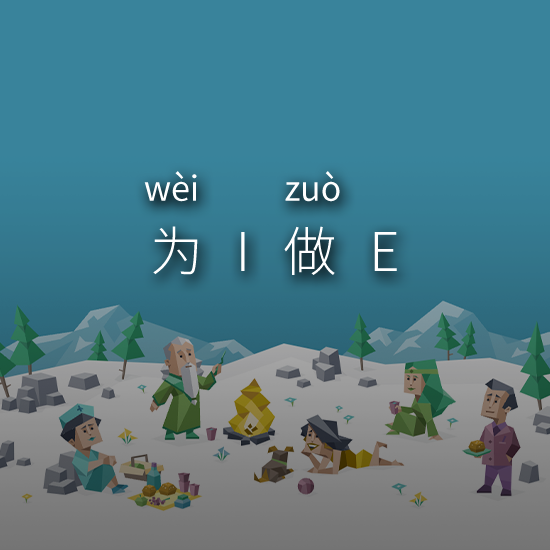
小孩哥/姐
Little Big Kids
You’ve heard of “kidults” — grown-ups who can’t quite seem to grow up — but China’s latest buzzword is their polar opposite: preternaturally mature kids whose life skills, attitudes, and fearlessness are spooking their elders. Known respectfully as “little big brothers” or “little big sisters,” they’re whipping up full meals, out-arguing aunties, and putting even more unwanted pressure on the country’s millennials.
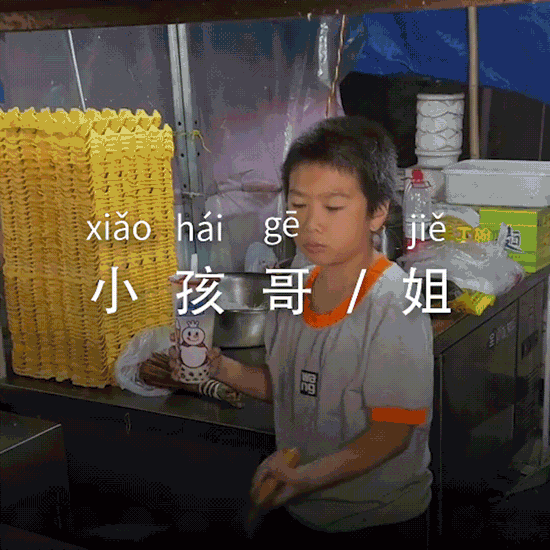
特种兵式旅游
Special Forces Tourism
Walk tens of thousands of steps a day, sleep at the train station instead of a hotel, and see as many sights as quickly as possible… Cash-strapped Chinese college students have embraced “special forces tourism” as they finally see the country after three years of pandemic restrictions. Usually setting off on Friday night or early Saturday morning, they’ll quickly run through the major attractions at their destination before rushing back to the classroom on Monday morning.
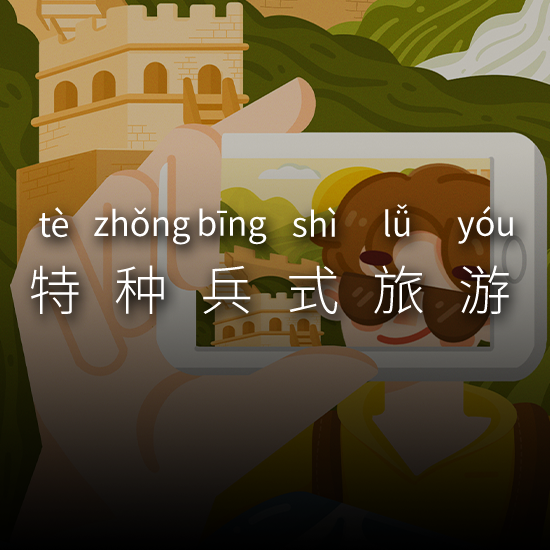
Gap Day
Taking gap years is a luxury that most Chinese cannot afford. However, in China where competition for everything from school places to jobs is high, many young people are finding the concept of consciously scheduling much-needed breaks increasingly appealing. So instead of gap years, young people are simply taking "gap days," from a whole day to just a few hours, and making a deal of it – a reflection of how difficult it is to have down time.
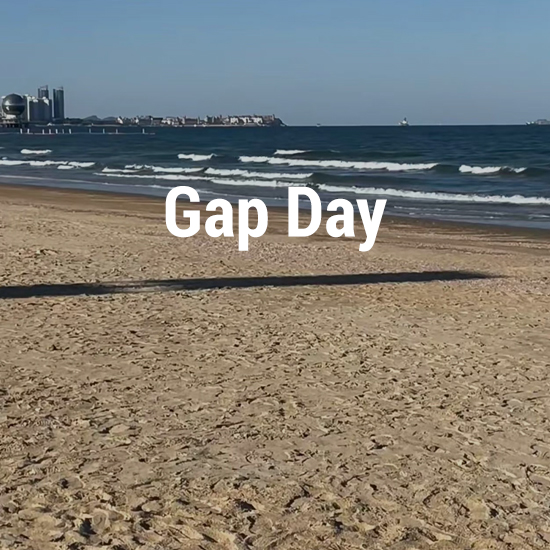
反向育儿
Reverse Parenting
While past generations of parents in China maintained a serious demeanor and relied on punishments as a form of discipline, the post-’90s generation is embracing a different approach: When their kids lay on the floor in an ice cream store, parents do the same. If the children throw away a toy, parents throw away others too. Some even go to extremes: putting their kids’ studies on hold to play video games for hours on end, just as their children desired.
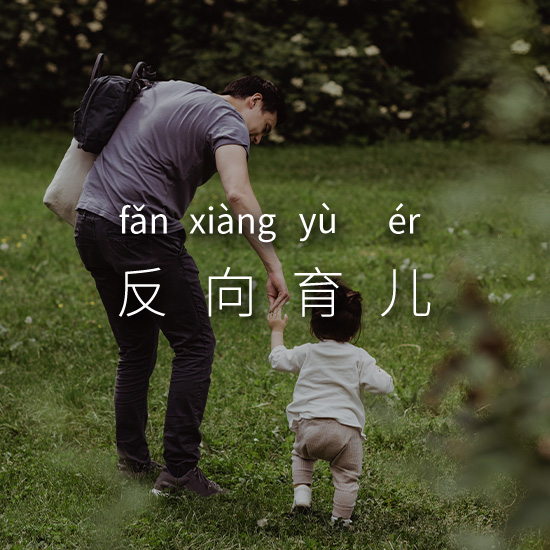
早F晚E
Fighting in the Morning, Emo in the Evening
Did you ever commit to a New Year’s resolution you could barely remember by February? Some young Chinese are going through that same wringer every day. Waking up dedicated to “fighting” for a better life, by bedtime they’re so exhausted they just want to lie down and listen to sad music. The phrase “fighting in the morning, emo in the evening” is derived from “早C晚A,” a popular skincare routine involving the application of vitamin C in the morning and vitamin A at night, and which is sometimes also used to mean “coffee in the morning, alcohol at night.”
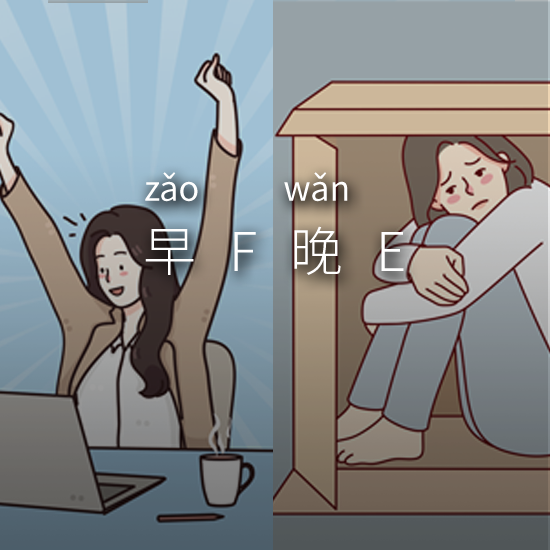
脆皮大学生
Glass-Jawed Undergrads
You’ve scored top marks on China’s gaokao college entrance exam. But can you put your pants on without cramping? Getting into college in China has never been easy, and secondary school schedules leave little time for training the body. Literally meaning “crispy skin college students,” the #脆皮大学生 tag has become a playful hangout for the country’s less physically gifted college students — a place they can go to swap stories of pratfalls, poor immune systems, and embarrassing injuries. Turns out a sharp intellect is no match for a slippery floor.

白人饭
White People’s Food
Initially, the term was used just to mock the simplicity of hastily put together and pre-made meals commonly associated with white people. But with time, more and more Chinese netizens are sharing their experiences preparing these stereotypically “white people” meals, which have the benefits of saving them time and money, accompanied by ironic commentary about these meals being useful for “maintaining vital signs of the body.”
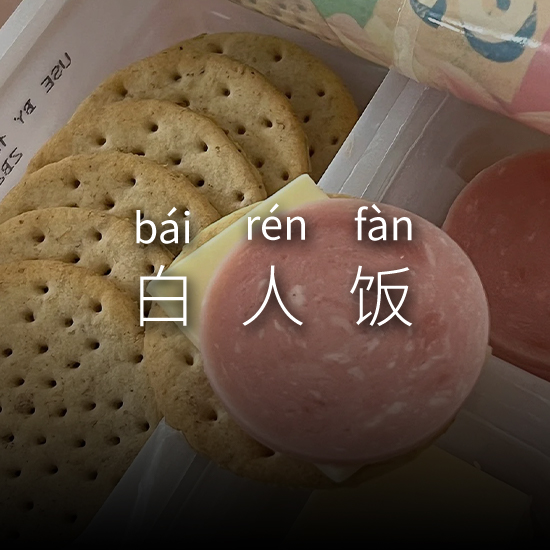
电子呕吐物
Cyber Vomit
More and more people are turning to social media to share and navigate through their complex and challenging emotions. The resulting mess is known as “cyber vomit”: a stew of teary posts, harsh lessons, and extended essays about life’s ups and downs. And as with all binges, viewing your feed in the harsh light of day can leave you feeling embarrassed — and maybe even a bit hungover.

One thing conspicuous about the list as a whole: three of the ten items either feature roman letters or consist entirely of English. Remember what Mark Hansell said years ago about roman letters becoming a part of the Chinese writing system:
Mark Hansell, "The Sino-Alphabet: The Assimilation of Roman Letters into the Chinese Writing System," Sino-Platonic Papers, 45 (May, 1994), 1-28 (pdf)
Selected readings
- "2023 WOTYs, stage 1" (12/3/23)
- "'Facial expressions' in text-dominant online conversation" (8/2/16) — biǎoqíng bāo 表情包 ("emoticon")
- "The growing impact of 'biaoqing' ('expressions') on the internet in China" (9/5/18)
- "Ask Language Log: The alphabet in China" (11/6/19)
- Helena Riha, "Lettered Words in Chinese: Roman Letters as Morpheme-syllables" (pdf)
- "Zhao C: a Man Who Lost His Name" (2/27/09)
- "Creeping Romanization in Chinese, part 3" (11/25/18)
- "The actuality of emerging digraphia" (3/10/19)
- "Sememic spelling" (3/27/19)
- "Polyscriptal Taiwanese" (7/24/10)
- "The Roman Alphabet in Cantonese" (3/23/11)
- "Love those letters" (11/3/18)
- "Acronyms in China" (11/2/19)
- "A New Morpheme in Mandarin" (4/26/11)
- "'They're not learning how to write characters!'" (11/5/21) — with lengthy bibliography
- "Parenthetical, alphabetical, ironical commentary in Sinographic texts" (12/29/21)
[Thanks to Don Keyser]
Deeply Read said,
December 29, 2023 @ 5:28 am
These Chinese buzzwords unveil the vibrant and witty side of the nation, demonstrating resilience in navigating online spaces. "Class Clown" humorously echoes attention-seekers, reminiscent of the colorful online world. The concept of "Being the Introverts’ Extrovert" resonates with those finding a voice in social scenarios, reflecting a growing acceptance of personality tests.
"Little Big Kids" shed light on the paradox of mature kids pressuring their elders, offering a humorous take on generational shifts. "Special Forces Tourism" reveals the adventurous spirit of students exploring despite financial constraints. "Gap Day" cleverly addresses the luxury of breaks in a competitive society.
"Reverse Parenting" showcases a shift in disciplinary approaches, emphasizing a more unconventional parenting style. "Fighting in the Morning, Emo in the Evening" captures the daily struggle many face in maintaining resolutions. "Glass-Jawed Undergrads" provides a playful space for physically less gifted students to share their experiences.
"White People’s Food" humorously explores stereotypes around meals, turning into a platform for culinary anecdotes. "Cyber Vomit" poetically encapsulates the emotional outpouring on social media, reflecting a shared journey through life's highs and lows. These buzzwords, often incorporating English, depict the evolving linguistic landscape, echoing Mark Hansell's insights on the assimilation of Roman letters into Chinese. The Chinese people's ability to infuse humor and creativity into language is truly remarkable, adding a distinctive flair to their online conversations.
John Swindle said,
December 29, 2023 @ 7:40 am
What's the Chinese term for "Gap Day"?
Victor Mair said,
December 29, 2023 @ 7:42 am
@John Swindle:
"Gap Day"
That was the point of my concluding comment.
Victor Mair said,
December 29, 2023 @ 10:20 am
@Deeply Read:
chatGPT couldn't have said it better
Adam said,
December 29, 2023 @ 3:47 pm
These online slangs are so interesting in the sense that they show the mutlifaceted subcultures in contemporary China. So many of them can be further delved into, and lead us to a more complicated internet ecology. For instance, "为I做E" is also having a homosexual connotation as the slang parodizes the homophonous gay term "為愛做一.” Really looking forward to further studies.
Michèle Sharik Pituley said,
December 29, 2023 @ 11:09 pm
@Victor: "That was the point of my concluding comment."
OK, but if one were to say "Gap Day" in Chinese, not necessarily phonetically equivalent, but more or less equivalent in meaning, how would one do so?
Victor Mair said,
December 29, 2023 @ 11:19 pm
@Michèle Sharik Pituley:
I hear them saying this all the time in Chinese. They don't have a separate term for it constructed of Sinitic morphemes. It's like when we say kumquat or loquat in English. Those are Sinitic morphemes borrowed directly into English.
Michèle Sharik Pituley said,
December 30, 2023 @ 12:07 pm
@Victor: ok thanks.